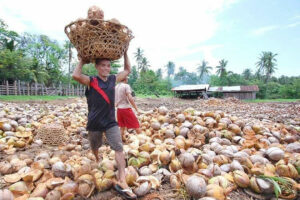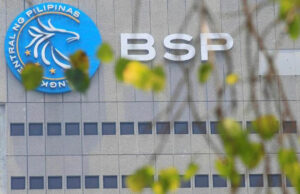Copra meal being studied for possible use in animal feed

A COPRA byproduct known as protein enriched copra meal (PECM) is being evaluated as a possible substitute for imported soybean-based feed for hogs and poultry, the Department of Agriculture (DA) said.
The resort to PECM is a “catch-up and mitigation plan” to sustain food production, enhance grain production and limit imports in the wake of the disruption of trade due to the pandemic and the Russia-Ukraine conflict, the department said in a memorandum circular.
The DA said this is an “urgent measure” to cushion the impact of soaring prices of raw materials used in animal feed, particularly soybean meal, which has in turn exerted upward pressure on pork and chicken prices.
“The global COVID-19 pandemic aggravated by the Russia-Ukraine war has significantly worsened logistical movement and restricted the availability and supply of feed ingredients, foremost of which are soybean meal, feed wheat, and corn, which resulted in the spike in prices of these commodities in the global market,” the DA said.
“This is due to the fact that 30% of the global supply of feed grains is produced in Russia and Ukraine … Moreover, the damage to (US port facilities) due to the cyclone has resulted in a shortage in the supply of soybean meal, which resulted in the unprecedented spike in prices,” it added.
PECM is 30% cheaper than soybean meal. Copra meal is a byproduct of coconut oil extraction.
“The project, therefore, offers great advantages and benefits to feed manufacturers, animal producers, and meat consumers, especially during this time of high food prices brought by rising fuel and feed commodities prices in the local and international market,” the circular read.
“It is also expected to help reinvigorate the coconut industry as it can generate increased demand for copra meal and (generate) livelihood opportunities for coconut farmers, many of whom are still living below the poverty line,” it added.
The project puts farmer beneficiaries in charge of managing, operating and maintaining the processing facilities and has them sell PECM.
The DA will also train farmers to market PECM to institutional buyers and feed millers.
The DA’s project partners are the Department of Science and Technology’s Philippine Council for Agriculture, Aquatic, and Natural Resources Research and Development, and the University of the Philippines Los Baños, along with selected Farmer Cooperatives and Associations. — Luisa Maria Jacinta C. Jocson




